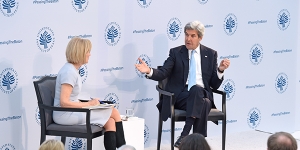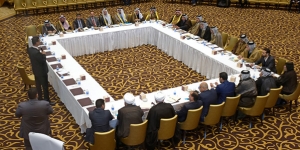Personal Stories from the Frontlines of War and Peace
From Iraq to Burma, from Peru to Yemen, from Nicaragua to Nepal, the personal stories of widows, children, workers, and soldiers often are lost in the cacophony of war. The U.S. Institute of Peace hosted a discussion and launch of "Speaking Their Peace: Personal Stories from the Frontlines of War and Peace," a book that tells the extraordinary stories of "ordinary" people from eleven conflict zones. This event included a moderated discussion with the book's author, Colette Rausch, and two members of the team that captured these memorable interviews, followed by a reception and book-signing session.
With a foreword by the Dalai Lama, the book collects interviews with 80 ordinary citizens – a taxi driver, a nun, a machinery worker, a mother -- from conflict zones all over the world. Their accounts illuminate the intensely personal experience of war, the uncertain transition to peace, and the aspirations that survive despite it all.

 Religion often is used to justify violence and the unequal status of women. More than ever, these problems are interrelated, and efforts that address them in isolation fail to produce comprehensive, long-term strategies.
Religion often is used to justify violence and the unequal status of women. More than ever, these problems are interrelated, and efforts that address them in isolation fail to produce comprehensive, long-term strategies.



